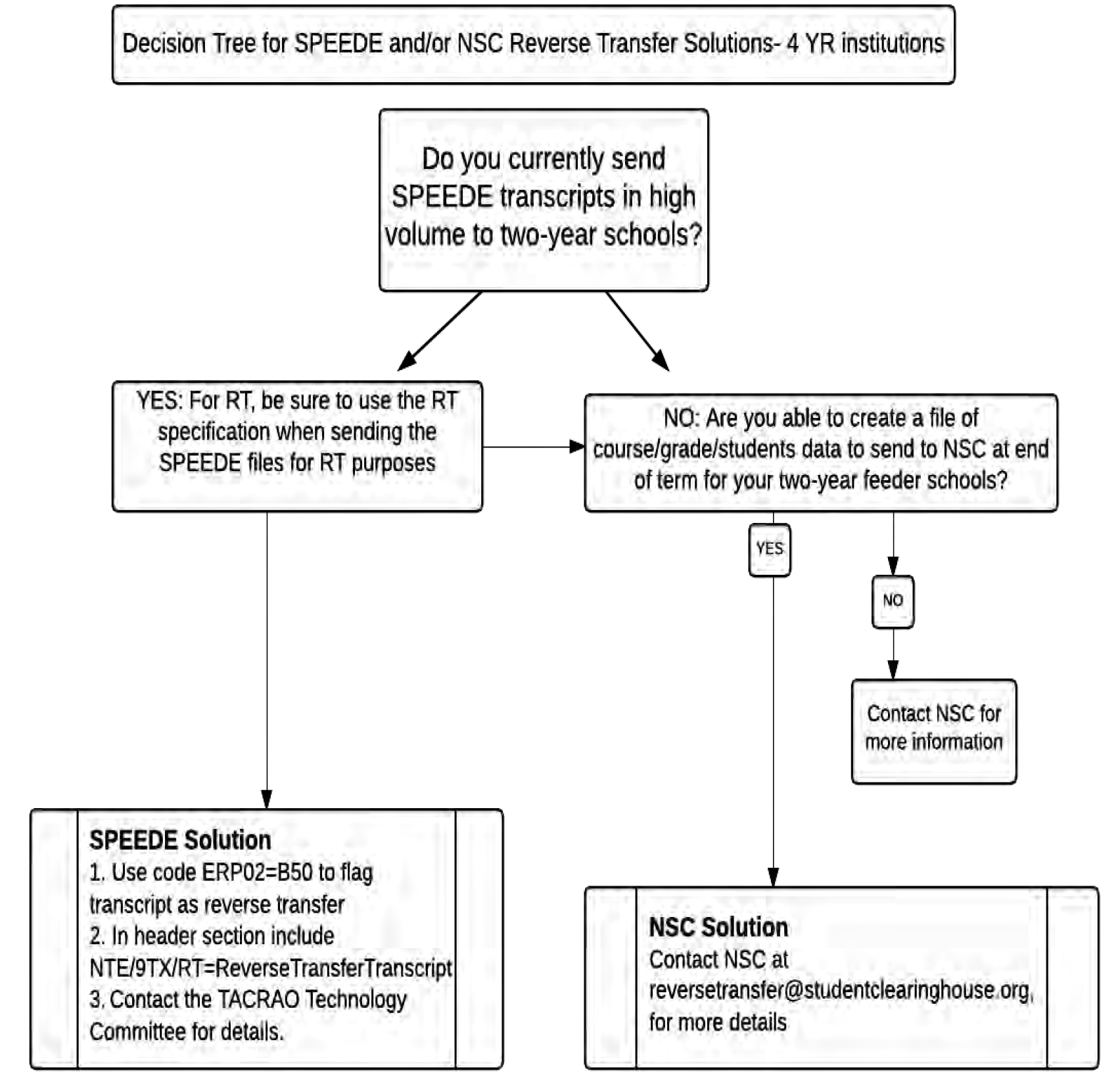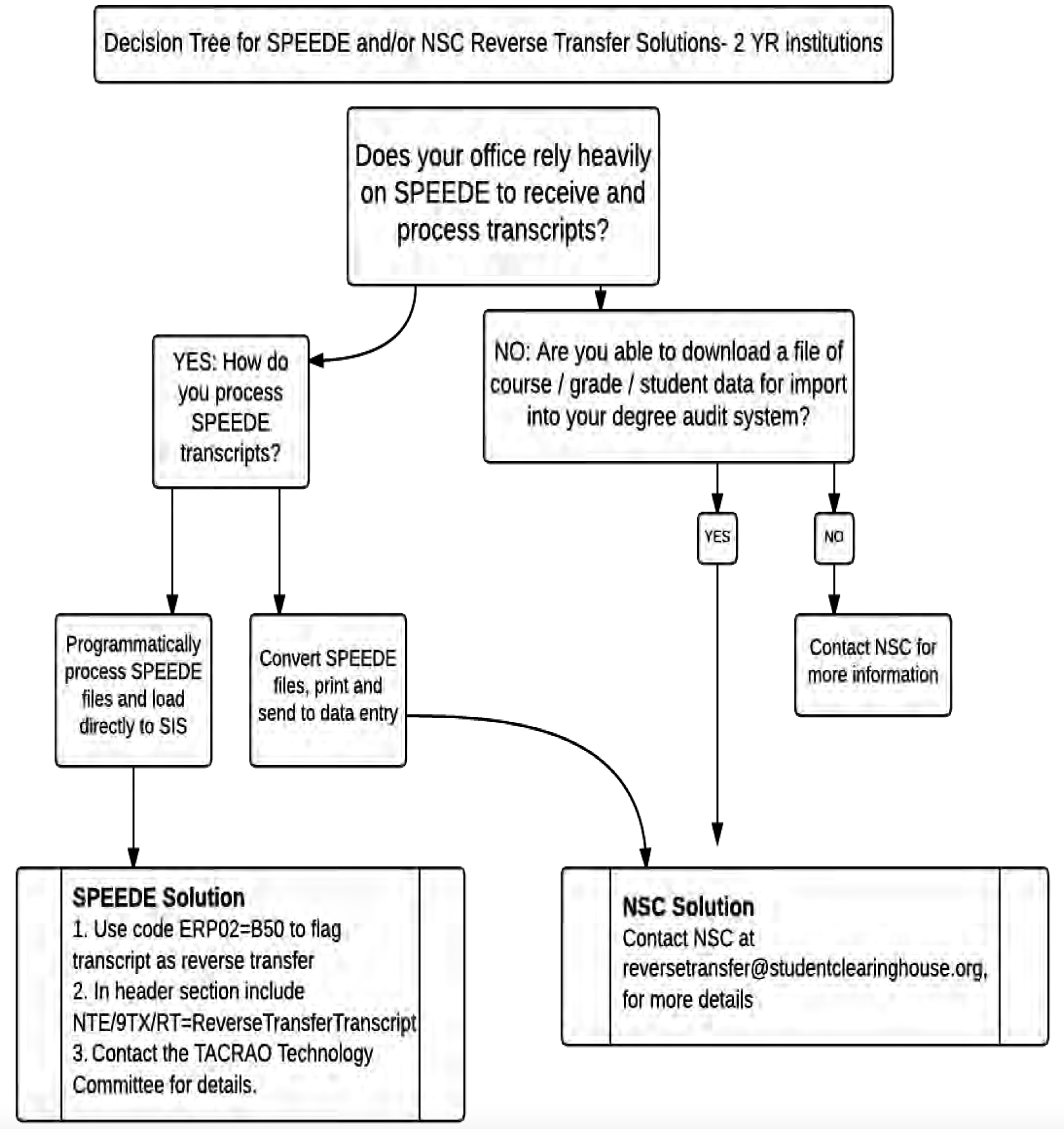The Clearinghouse’s Reverse Transfer service facilitates the exchange of course/grade data between institutions across the country including private and across state lines. Host (data provider) institutions need to ensure that the FERPA policies are in place before sending student data. Both hosts and Degree-Granting Institutions (DGI) for the purposes of awarding Reverse Transfer degrees need to review policies and procedures as part of implementing reverse transfer. Policies include statewide mandated specific requirements, FERPA, admissions, and graduation policies.
The following needs to be considered:
- Student eligibility – Hosts will only send data to the Clearinghouse for students they have deemed eligible for Reverse Transfer. The rules for eligibility are typically established by the Host. Some Host institutions have established and followed the standard accreditation regulations by establishing a minimum of 25% or 15 credits earned by the student at a previously attended 2-year institution which is typical for most associate degrees. Then the DGI can establish its own policy and the Host does not have to have different policies for different institutions.
- Student consent – Hosts will only send data to the Clearinghouse for students that have given their consent, as the Clearinghouse solution will not track student consent for this service. The Host and/or Degree Granting Institution will need to work together regarding obtaining consent for the student to participate in a Reverse Transfer program. See Managing FERPA.
- Frequency – there is no limit to how often Hosts can send data to the Clearinghouse. However, per the contract, Hosts will at a minimum send student information and Student Academic Data for students that are eligible and have provided consent to Clearinghouse at the end-of-term of each term once grades are posted. If an institution does not have regular calendar terms, the institution will report no less frequently than three times per calendar year.
- Cumulative vs updates only – Hosts can send cumulative data or only send updates (current semester) in each file. The Clearinghouse will include all data cumulative per student in our response file for DGI.
Considerations for Exchanging Data with Texas Reverse Transfer Partners
Many institutions in Texas are already participating in Reverse Transfer using the SPEEDE platform to exchange transcript files between institutions. The Texas Reverse Transfer Initiative and the Clearinghouse developed a decision tree for 4-year and 2-year institutions to determine the appropriate solution implementation path.
The decision tree for 4-year institutions is below:

The decision tree for 2-year institutions is below:


